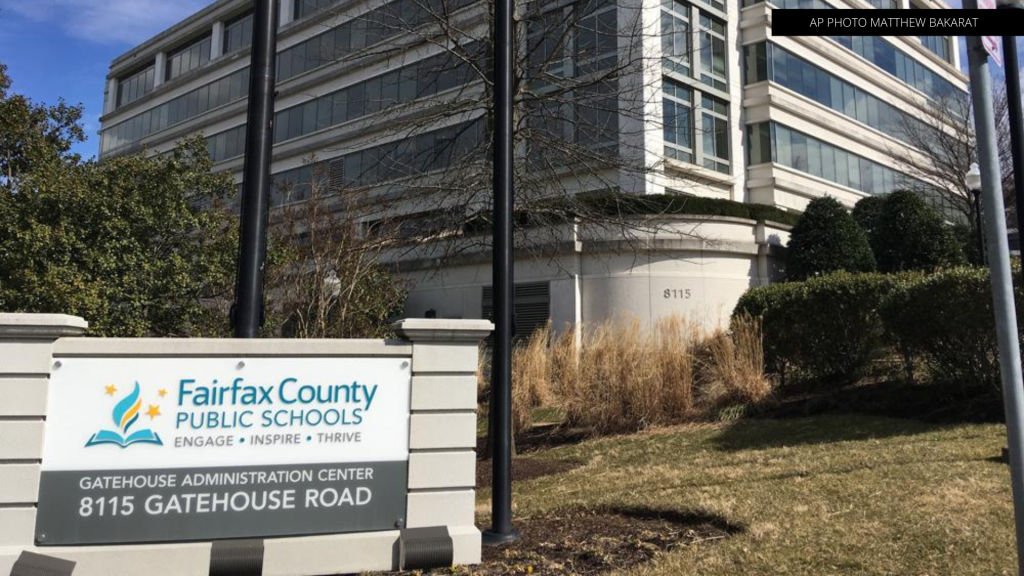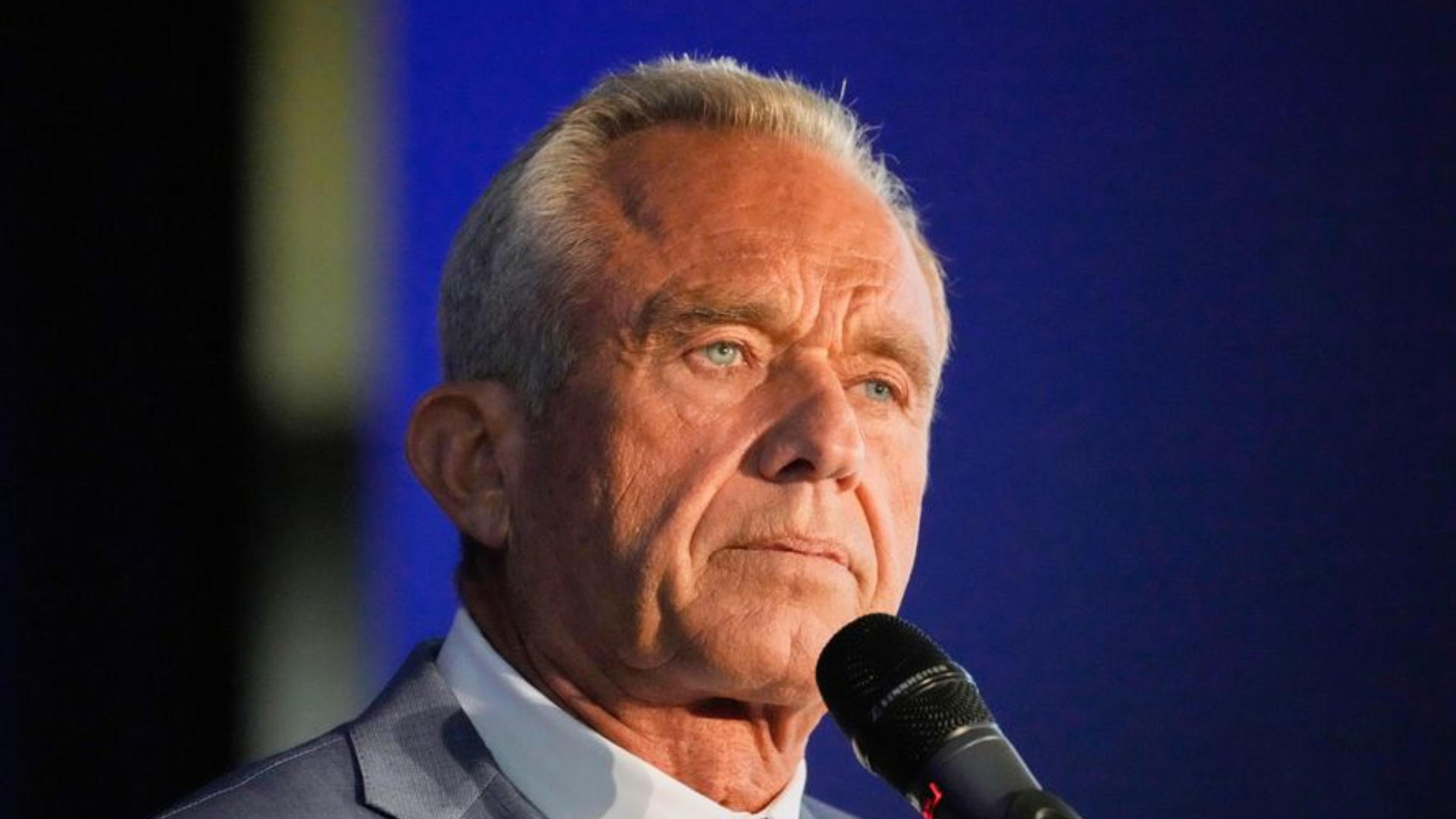FALLS CHURCH, Va. (AP) — A pair of lawsuits that for years has plagued Virginia’s largest school system with allegations that it ignored students’ accusations of sex assaults are back in front of federal judges.
One of the lawsuits includes allegations of horrific abuse suffered by a student at a Fairfax County middle school and was the basis for a 2014 federal investigation.
The lawsuits attracted low-level attention when they were filed before the pandemic and became caught up in appeals. Now, both cases are moving forward again at a time when schools’ responses to alleged sex assaults are receiving more intense scrutiny, as evidenced by the national attention in neighboring Loudoun County.
The middle schooler filed an amended complaint earlier this month after the school board’s efforts to block her suit were rejected. Her ordeal began in October 2011, according to the lawsuit, when she was a seventh grader at Rachel Carson Middle School in Reston. A classmate started telling others that he’d engaged in sexual activity with the girl, identified only by her initials in the lawsuit.
As rumors spread, she started to face harassment and name-calling at her locker in hallways. Then, she alleges, a boy at the school began routinely sexually assaulting her — sometimes with others joining the assault — and threatening her to remain silent.
The assaults occurred over a period of months, according to the lawsuit. The girl was evaluated by a nurse who confirmed scarring consistent with anal rape, but a police detective — the former school resource officer at Rachel Carson — dismissed the activity as consensual.
School officials continued to downplay and minimize the alleged assaults as consensual, even though the girl was 12 and was pleading with administrators and counselors for protection while the supposedly consensual relationship was ongoing.
She also alleges that on school grounds, a group of boys forced her into a closet and sexually assaulted her.
Eventually, in 2012, the girl’s mother filed a complaint with the U.S. Department of Education’s Office of Civil Rights. After a two-year investigation, the school system entered a voluntary resolution agreement in which it admitted no wrongdoing but agreed to improve its tracking and responses to allegations of sexual assaults.
The lawsuit was filed in 2019. It has been hung up until now because the school system objected to her filing under a pseudonym. The school system appealed to the 4th U.S. Circuit Court of Appeals in Richmond, which unanimously ruled in the girl’s favor.
In a statement, Fairfax County Public Schools says it cooperated fully with the investigation and noted that police and prosecutors declined to bring criminal charges. The school system also said the girl’s allegations in the most recent complaint are more severe than what she first reported to school officials.
“We continue to believe the senior staff acted appropriately and lawfully in addressing this family’s concerns 11 years ago,” the school system said in the statement.
The other lawsuit involves a girl at Oakton High School who said she was sexually assaulted by a boy on a bus during a school band trip. That case went to trial in 2019. A jury found in the school system’s favor, ruling that the girl had been assaulted but did not give the school system proper notice of what had happened to her.
On appeal, though, the 4th Circuit ruled 9-6 in favor of the girl and sent the case back to Alexandria for a new trial.
The appellate ruling has turned a case that seemingly hinged at trial on a he-said-she-said question of whether the girl was assaulted into a case that could significantly alter the scope of Title IX, the 50-year old law that bars discrimination based on sex in education.
The dissenting justices said school systems shouldn’t be held liable for a sexual assault unless they had some reason to know beforehand that the perpetrator posed a risk.
Judges who ruled in favor of the Oakton student said the school system should not be entitled to “one free rape” before it can be held liable for its policies and procedures.
Alexandra Brodsky, a lawyer with Public Justice, which is representing the Oakton student, said she’s especially concerned that a purportedly progressive school board in Fairfax County authorized pursuit of a legal strategy that, while it could help it win its case against the Oakton student, could set a dangerous precedent that weakens students’ protections from abuse.
“Fairfax County is asking the Supreme Court to gut Title IX protections for sexual assault survivors,” Brodsky said.
Brodsky said there is now greater public awareness of schools’ failure to support students who report sexual assaults and sexual harassment, particularly in Fairfax County, the nation’s 10th largest school system.
Students at high schools across the county staged walkouts protesting administrative inaction to student claims. Two school principals have been charged criminally with failing to report alleged sex crimes to police, as required by law.
Much of that scrutiny has been driven by conservative political activists. In Loudoun County, the school system faced intense backlash over its handling of alleged sex assaults, which became a national rallying point on conservative news outlets in part because the perpetrator in two of those cases was a boy wearing a skirt.
Brodsky said that while transphobia drove some of the attention to the issue in Loudoun, “I don’t think that means that there isn’t good faith, bipartisan concern about these issues. … Protecting students from sexual abuse should be a nonpartisan issue.”

Copyright 2022 by the Associated Press. All Rights Reserved.
Tune in live for more on the stories that matter to you: WMAL.com | WMAL app | “Alexa, play W-M-A-L”
Follow WMAL on social media: Twitter, Facebook, Instagram, Youtube, Rumble, Gettr and Parler




















